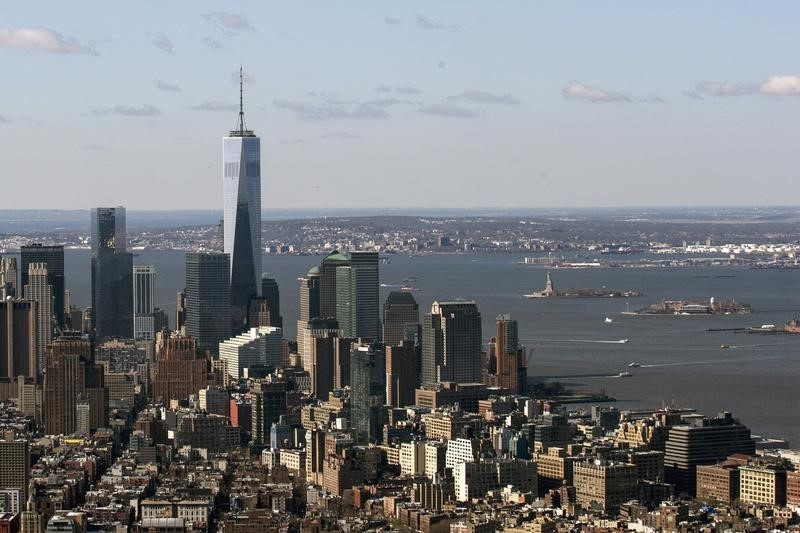By Scott Kanowsky
Investing.com -- U.S. growth contracted in the second quarter, according to the Bureau of Economic Analysis on Thursday, as the world's largest economy failed to avoid slumping into a so-called technical recession.
Preliminary gross domestic product in the country fell by 0.9% on an annualized basis during the period, marking the second straight quarterly decline after the reading dropped by 1.6% in the first three months of the year. Two consecutive quarters of negative figures can be defined as a 'technical recession'.
However, the U.S. does not adhere to that definition, instead following a determination from the National Bureau of Economic Research that is based on several different factors such as the labor market and underlying demand.
The slip in GDP also surprised economists, who had estimated that growth would rise by 0.5%.
"The decrease in real GDP reflected decreases in private inventory investment, residential fixed investment, federal government spending, state and local government spending, and nonresidential fixed investment that were partly offset by increases in exports and personal consumption expenditures," the Bureau of Economic Analysis said in a statement.
U.S. stock markets opened marginally higher despite the data. The Dow Jones Industrial Average edged up by 0.23%, the S&P 500 rose by 0.32%, and the tech-heavy Nasdaq Composite increased by 0.28%.
Elsewhere, the dollar index - which measures the greenback against a basket of several other currencies - narrowly held on to gains, trading up by 0.04%.
The numbers come a day after the Federal Reserve moved to raise interest rates by 75 basis points for the second month in a row in a bid to bring down red-hot inflation. But these jumbo hikes have weighed on growth, evidenced by a string of weak economic data.
"Powell’s strong focus on the inflation mandate therefore supports our forecast that the economy will in fact go into recession in the second half of this year. There is still a path to a soft landing, but it is too narrow to be our base case," analysts at Bank of America wrote in a note.
Even still, the central bank does not look poised to change its stance any time soon. Fed chair Jerome Powell said on Wednesday that he does not believe the U.S. is currently in a recession, citing in part recent tightness in the labor market.
Initial weekly jobless claims, also released on Thursday, came in at 256,000. The figure is down from the revised number of 261,000 during the previous week, suggesting a nascent slowdown in the labor market may be waning.
Meanwhile, unemployment remains at 3.6%, touching a low not seen since before the onset of the COVID-19 pandemic.
